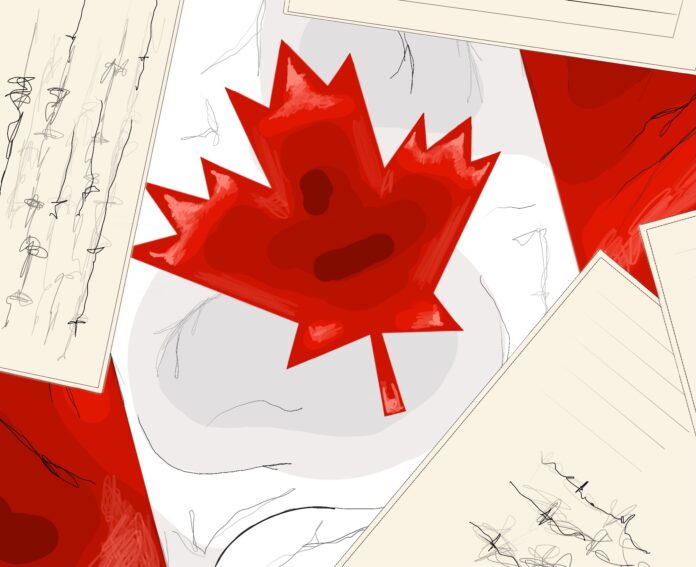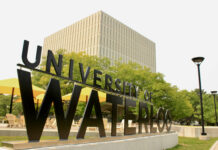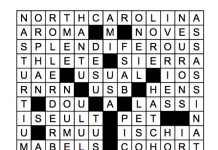Canada is holding a Federal Election on Sept. 20. Regardless of your political perspective, this is a chance to express your opinion in a way that could meaningfully change society.
The last federal election was held on Oct. 21, 2019. Back then, the Liberals won more seats than any other party, but failed to maintain their majority government from 2015, meaning they did not have 50 per cent of the legislature.
Below is a breakdown of the political parties, politicians and policies that are relevant in this upcoming election, so that you can make an informed decision when hitting the polls.
Canadian Political Parties
There are nearly two dozen political parties that are at least semi-operational across Canada, provided a Member of Parliament (MP) is running in your area. However, only a minority of these parties are typically able to elect an MP. Accordingly, the parties that are currently represented in parliament and are almost guaranteed to be on any ballot are the Liberal Party, Conservative Party, New Democratic Party (NDP), and Green Party of Canada.
In Waterloo, there are five candidates running this year: Liberal Bardish Chagger (the incumbent), Conservative Meghan Shannon, NDP Jonathan Cassels, Green Karla Villagomez Fajardo and People’s Party of Canada (PPC) Patrick Doucette.
Politicians, Platforms and Policies
How will the election affect you and the things you value? Who is the Federal party, and local MP, that deserves your vote? Let’s do a brief summary of each platform, as well as the Political Parties and Politicians who are proposing them, to discover how they are fighting (or lack thereof) for the student population in Waterloo, and highlight other important matters that students broadly care about.
Liberal Party of Canada
Slogan: Forward. For Everyone.
The Liberal Party, led by Justin Trudeau, is campaigning for a third election victory in a row, only this time, they are fighting for a majority government. To achieve this, they are relying on Canadians to acknowledge their proclaimed accomplishments over the last six years while in power, and share their vision for the future.
Student-related policy proposals:
- Double Canadian Student Grants for two additional years.
- Permanently eliminate the federal interest on Canada Student Loans and Canada Apprentice Loans to support young Canadians who choose to invest in post-secondary education.
- Increase the repayment assistance threshold to $50,000 for Canada Student Loan borrowers who are single. This means that new grads, working hard early in their careers, won’t have to begin repaying their loans until they earn at least $50,000 annually.
- Introduce a new fund for student well-being to improve wait times and increase access to mental health care at colleges and universities.
Conservative Party:
Slogan: Secure the Future
The official opposition, the Conservative Party, is looking to regain at least a minority in parliament for the first time since Stephen Harper’s leadership ended in 2015. To do so, they are highlighting what they believe are the failures of the Trudeau government, while offering their vision for the future, which they promise will be secure and stable for the country. Former veterans affairs minister Erin O’Toole leads the Conservatives. This is his first election running for prime minister.
Student-related policy proposals:
- Ensure all provinces receive a fair proportion of funding for university research and other education and cultural programs.
New Democratic Party (NDP):
Slogan: Ready for Better
The NDP are typically considered Canada’s progressive party, as their proposed policies are usually more left-wing than those put forward by other major parties. Jagmeet Singh is running as the party’s leader, as he had done previously in 2019.
Student-related policy proposals:
- Eliminate interest from federal student loans and introduce a targeted debt forgiveness program that forgives up to $20,000 in student debt.
- Give new graduates a five-year moratorium on student loan payments.
- Permanently double non-repayable Canada Student Grants.
- Work with provinces to cap and reduce tuition fees, building toward making post-secondary education free and part of the public education system.
Green Party:
Slogan: Be Daring
Known for their strong stance towards environmental protection, the Green Party is hoping to build on their previous gains, which include going from one seat to three between 2015 and 2019 and winning over one million votes in the latter election. Led by recently elected Annamie Paul, the Green Party has plenty of policy proposals in addition to those relating to the environment.
Student-related policy proposals:
- Help students afford post-secondary education by cancelling all federally-held student loan debt and abolishing tuition; the latter promise for “Education For All” is estimated at $10.2 billion.
- Reintroduce a retroactive Canada Emergency Student Benefit (CESB). Ensure all those eligible for the CESB receive $2,000 per month – the same amount as the Canada Recovery Benefit for the period beginning May 1, and until the pandemic is over.
- Reinvest in the system. Greens will allocate $10 billion to post-secondary and trade school supports.
People’s Party of Canada (PPC):
Slogan: Common sense policies that put Canadians First
The PPC is led by Maxime Bernier, who created the party after losing to Andrew Scheer in the 2018 conservative leadership race. The PPC claims to be a populist party that opposes supposed corruption and elitism in government, and in particular, the lockdown measures imposed after the onset of COVID-19. Although they won no seats in Parliament in 2019, a PPC member is currently running in the Waterloo riding.
Student-related policy proposals:
- Withhold federal funding from any post-secondary institution shown to be violating the freedom of expression of its students or faculty.
From the horse’s mouth:
Imprint reached out to several MP’s running in the electoral riding of Waterloo to ask them about what they thought about issues affecting students.
Q: What do you believe are the most pressing issues on the minds of students/young people in this upcoming election?
Liberal Party (Bardish Chagger):
Students and young people have told me that they are concerned about their future. They are thinking about how to pay for their education, and what types of jobs they will be able to get when they graduate. They have told me they are concerned with mental health and they are concerned about climate change.
Prime Minister Justin Trudeau has said youth aren’t leaders of tomorrow, they are leaders today. We know it is critical to engage youth and have them at decision-making tables. This is why we created Canada’s first ever Youth Policy and engaged youth to write the State of Youth report, so we have heard directly from young Canadians on what they need from the government to succeed.
Conservative Party — Meghan Shannon:
The most important issues that I hear young voters and students praise are the cost of living and economic opportunity for recent graduates. We have an affordability crisis playing out in every city across Canada. The cost of housing is through the roof and essentials like groceries, electricity and fuel are all on the rise. We need to do more as a government to bring the housing market back to earth, and keep the cost of essential goods down so that people can afford to save for their future. Post Secondary students are getting particularly squeezed by this issue because of the problems we are seeing with youth unemployment. Finding a job is hard enough, finding one that pays well enough to make up for the rising costs of living, and leaves enough room to save up to buy a house is nearly impossible for most recent graduates. This needs to change.
New Democratic Party (NDP) — Jonathan Cassels
Students are really connected to, and really well informed about, a lot of issues this election. The things I hear the most about from students are affordable housing, the cost of post-secondary education, and the climate crisis. But the common thread among students is a desire for government policies that are putting people first and aren’t filled with excuses.
Q: Why should students/young people vote for you? What are your most important policies that will directly affect them?
Liberal Party (Bardish Chagger):
I know the pandemic has been particularly difficult for students and young people. This is why our Liberal government moved quickly to introduce support like the Canadian Emergency Student Benefit and doubled Canada Student Grants to up to $6,000 for two years to support young people through the pandemic. But we know there is more to do. This is why a re-elected Liberal government will eliminate the interest on Canada Student Loans, which will save an average borrower more than $3,000 over the lifetime of their loan. We will help students repay their loans by increasing the repayment assistance threshold to $50,000 for Canada Student Loan borrowers who are single.
Young people have been clear that mental health is a priority. This is why we will support mental health care for students at colleges and universities, by funding 1,200 new mental health counsellors, including those who can support BIPOC students. Students and youth have also been clear that they want
a green future. I know climate change is real, and one of the most crucial challenges of our lifetimes. Under Justin Trudeau, the Liberal government has already put a price on pollution, banned single-use plastics, required that all vehicles sold in Canada be zero-emission by 2035, and committed to net-zero emissions by 2050. We will support jobs in the clean energy sector, because we know the economy and climate change go hand in hand. We will create cleaner communities by charting a path toward net-zero
buildings across the country, and zero emission public transit like the ION Light Rail. We will create 10 new National Parks and 10 new National Marine Conservation Areas in the next 5 years, and continue to plant 2 billion trees. We will cut pollution by building a net-zero electricity grid by 2035, phase-out coal by 2030, and eliminate fossil fuel subsidies in 2 years. A re-elected Liberal government will build on our progress over the past few years to not only protect our environment against climate change, but to ensure Canada comes roaring back from this pandemic, as we build back a better, consciously more inclusive, and greener Canada.
Conservative Party (Meghan Shannon):
We have a plan to address these issues and others that are important to students and youth in Waterloo and beyond. To address the issues of affordability and cost of living we are going to ban the purchase of homes in Canada by foreign investors who do live in or intend to move to Canada. We are going to use various regulatory measures to incentivize the construction industry to build 1,000,000 new homes over the next 3 years to increase the supply and take some of the demand pressure off of prices. And we are going to bring down the cost of living by winding down the Covid support programs that are causing inflation. We are going to do all this while also doubling the increase in transfers to provinces for healthcare, and investing heavily in mental health because we recognize that the mental health of our young people is at an even greater risk now than it was prior to Covid-19 and it has been neglected for far too long.
New Democratic Party (NDP):
People should vote for me because I am a candidate who has taken a principled stance to tackle the climate crisis, and will fight day in and day out for them to make life more affordable, on issues like affordable housing and access to education.
Climate change is top of mind for most people I speak to; they want to be able to plan for their futures in a more certain world. But to guarantee that certainty, we need to take concrete action to tackle the climate crisis. The NDP has a plan to stop publicly funding the oil and gas sector, aggressively curb emissions, and keep reconciliation at the heart of our climate policies. Unlike candidates for other parties locally, I’m also opposed to building new oil pipelines during a climate crisis.
Affordable housing is something I hear about as well. Average rent in Canada has increased $4200/year in the last 6 years with no sign of slowing down. The NDP has a plan to support renters with as much as $5000 in assistance, to help them now. We also have a plan to increase supply, which includes building at least 500,000 new, affordable, quality units. And we’ll bring costs down for everyone, renters and those seeking to buy, by getting foreign speculators out of our markets with a new foreign speculator tax and allowing first-time-homebuyers access to longer mortgages. Together, these measures give immediate relief, and will enable us to solve the problem at its source as well.
Finally, I know that access to education is extremely important. If you have the grades and have studied hard, you should be able to get the education you want. The NDP has a plan to ensure that every Canadian has access to publicly-funded education, from child care through to university and college, apprenticeships, and skills training programs. We’re also going to help those who’ve already graduated (or soon will) by forgiving large amounts of student debt — our plan will forgive nearly 20% of all student debt within its first year.”
Representatives from the Green Party and PPC did not respond to Imprint’s request for comment.
After reading this, if you still have additional questions about how to vote, reach out to Elections Canada. You can contact them by calling 1-800-463-6868 or filling out the “Contact us” form on their website. On that same website, they also have a ‘frequently asked questions’ section, where many common questions are answered.
Get out there and vote!































